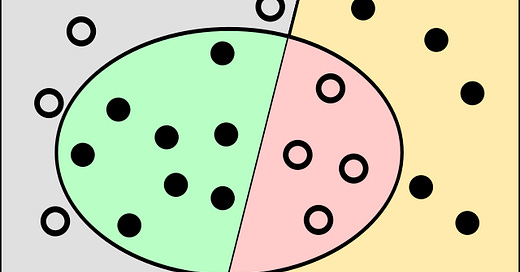Housekeeping: I’m going to stop numbering entries to this series, as beyond the first two there’s no linear progression. If this is your first post in the series then I recommend starting with Part 1 and Part 2 for background, but it’s not strictly necessary.
Apologies to free subscribers, but I do paywall some posts and this is one of them. Consider a subscription if you’re curious about this or some of the archived posts.
As Bradley Campbell and I have written, “the distinction between offender and victim always has moral significance.” The one who has done wrong is worse and deserves condemnation and punishment. The one who has been wronged, on the other hand, might deserve our sympathy and aid. In this way ideas about right and wrong give rise to kinds of social status.
Thus, sociologist Donald Black writes about respectability as a kind of moral status arising from a reputation for deviant or virtuous behavior. His examples often deal with those who are disreputable: Criminals with long rap sheets have low respectability, at least in the courtroom.
In our work, Campbell and I have focused on the kind of status that comes from being a victim. As we wrote elsewhere:
“We posit that victimhood is a kind of moral status based on suffering and neediness, something that makes one sympathetic and deserving of help and concern. Like honor and dignity, this form of status exists in a wide variety of contexts, though it plays a much greater role in some than in others.”
The degree to which victimhood conveys status – or at least one dimension of it – varies accordingly.
In honor cultures the status of victims is relatively low. Appeals to victimization are mostly limited to justifying one’s retaliation: “He wronged me and had it coming.” They often win little sympathy otherwise, and unavenged victimhood can be so shameful that it is better to be an offender than a victim.
In dignity cultures victimization is not so shameful, and so victims receive relatively more sympathy. Thus the moral status of the average victim is higher. But neither is being a victim necessarily praiseworthy. Depending on the details, it hovers closer to being morally neutral.
In victimhood culture being defined as oppressed, suffering, and so forth carries more status. To a substantially greater extent than in honor or dignity cultures, such recognition begets deference and even praise. As a social resource, it can be mobilized to make demands, win arguments, forestall criticism, get jobs, and win partisans against one’s adversaries. It also insulates one from the moralism directed against those defined as privileged and makes it so that one is considered by definition unable to commit some of the culture’s most severe offenses, such as racism. Victimhood is practically a virtue.



